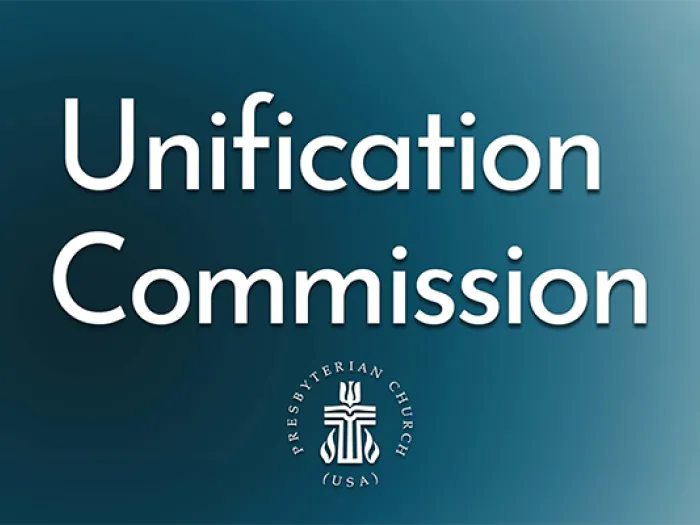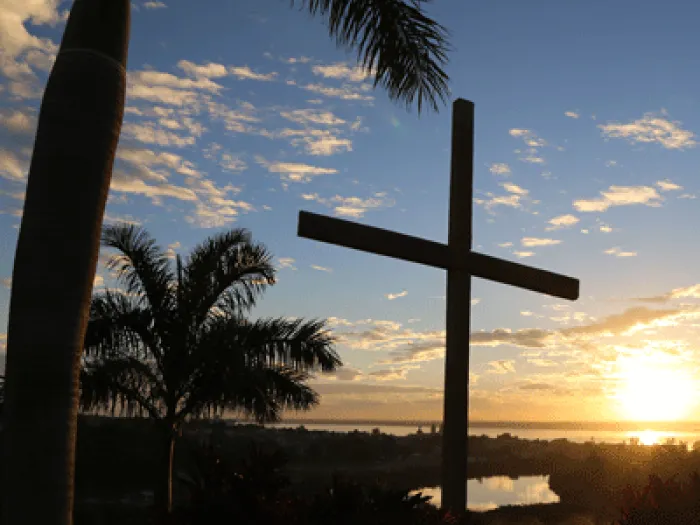On Reformation Day, remembering the call to confess our faith in every age
Special committee considers what we need to address as a church


On Oct. 31, 1517, Martin Luther nailed his 95 theses on the church door in Wittenberg, Germany. This past Sunday, many congregations celebrated this event as a catalyst for the way the Reformed faith came to be and continues to understand its calling. “Presbyterians celebrate the tradition that grounds their faith on Reformation Sunday,” according to the Presbyterian Historical Society, which publishes bulletin inserts highlighting a significant figure or event in the Reformation.
But reform is not just history for Presbyterians. It is also a concern for the present.
“As Christians, our faith began with the followers of Jesus. But the beginning of our Christian faith as Presbyterian is in the Reformation,” says the PC(USA)’s webpage to commemorate Reformation Sunday. “The Reformation marks something significant for us in this part of the universal church: the coalescence of our focus on the Holy Spirit’s ongoing reform of us as a church and as individuals.”
How Presbyterians have understood this call to reform has not remained static. Invocation of the phrase from F-2.02 in the Book of Order, “the church reformed, always being reformed, according to the Word of God, in the power of the Spirit,” commonly appears at General Assemblies, in revisions of church polity and when contemporary times call for a new confession.
In 2022, the 225th General Assembly considered three overtures asking the Assembly to recognize this time as a "status confessionis," a moment that calls for adopting a new confessional statement to clarify specific points where our existing confessions do not provide the clarity we need. The overtures called for adding that new confession to the constitution of the Presbyterian Church (U.S.A.). The overtures from the General Assembly Committee on Ecumenical and Interfaith Relations, the Presbytery of Arkansas and the Synod of the Northeast shared a concern about growing social divisions, practices of othering and systemic marginalization. “An underlying question of our time is: what does it mean to be human?” stated TWE-08 from the Presbytery of Arkansas, which noted that “oppressive theological anthropologies have elevated particular groups and reduced the humanity of those deemed ‘other’ because of their race, gender, nationality, sexuality or socioeconomic status.”
Although in 2022, the Synod of the Northeast proposed a draft statement, the 225th General Assembly did not adopt it. “The Assembly decided to go with the third option, which was to write a new confession,” said the Rev. Dr. Barry Ensign-George, manager of the Office of Theology and Worship. In this case, the proposed confession would be “particularly concerned about theological anthropology, what it is that we understand human beings to be in light of relationship with God,” said Ensign-George.
This question of theological anthropology guides the special committee appointed by the 225th General Assembly as it discerns if our time is indeed the time to make a new confession and what that confession would say. The Special Committee to Write a New Confession is a diverse and accessible committee tasked with discerning the need for and drafting a new confession for the PC(USA). It offers simultaneous translation to its members and conducts its business through a hybrid of virtual and in-person meetings.

The special committee is comprised of the following members:
- Edwin David Aponte, Co-Moderator, Teaching Elder, Mid-Kentucky Presbytery, At-large
- Margaret Aymer, Co-Moderator, Teaching Elder, Mission Presbytery, At-large
- Jess Cook, Teaching Elder, The James Presbytery, At-large
- Nagwa Fokunang, Church Member, Utah Presbytery, At-large
- Jack Haberer, Teaching Elder, Mission Presbytery, At-large
- Matt Hartley, Ruling Elder, Philadelphia Presbytery, At-large
- Craig Howard, Teaching Elder, Chicago Presbytery, At-large
- Byungil Kim, Teaching Elder, Philadelphia Presbytery, At-large
- Magalene McClarrin, Ruling Elder, Long Island Presbytery, At-large
- Kai Moore, Teaching Elder, New Castle Presbytery, At-large
- Martha Moore-Keish, Teaching Elder, Greater Atlanta, At-large
- Kristy Rodgers, Ruling Elder, Eastern Oklahoma Presbytery, At-large
- Jeniffer Rodriguez, Teaching Elder, Hudson River Presbytery, At-large
- Anthony Trujillo, Church Member, New York City Presbytery, At-large
- Mirna Wasef, Ruling Elder, San Diego Presbytery, At-large
- Charles Wiley, Teaching Elder, Greater Atlanta Presbytery, At-large.
A ">showcase of their last six meetings is available on Vimeo.
The Special Committee to Write a New Confession will meet virtually again on Nov. 14 from 1 to 3 p.m. Eastern Time and then in person December 12-14 at the Presbyterian Center in Louisville, Kentucky.
“Reformation Sunday has some obvious connections” to the work of this special committee, said Ensign-George, who resources the committee along with Dr. Dianna Wright, director of Ecumenical and Interreligious Relations for the Office of the General Assembly. Of the Reformed tradition’s place in Christianity, Ensign-George remarked, “We’re the great confession writers, articulating for ourselves and for others what faithfulness to Jesus Christ calls us to believe and do.”
In the latest meeting, members of the Special Committee to Write a New Confession parse doctrine about God from theological anthropological statements about human beings.
You may freely reuse and distribute this article in its entirety for non-commercial purposes in any medium. Please include author attribution, photography credits, and a link to the original article. This work is licensed under a Creative Commons Attribution-NonCommercial-NoDeratives 4.0 International License.




